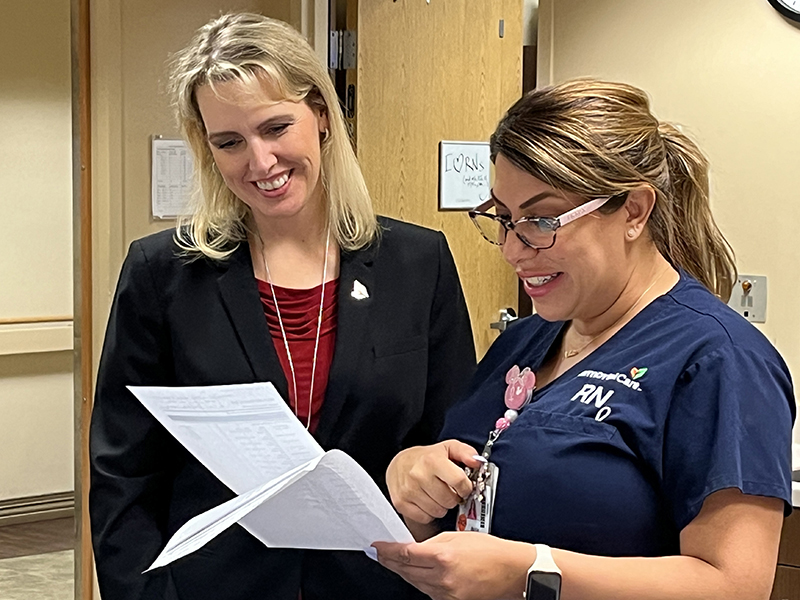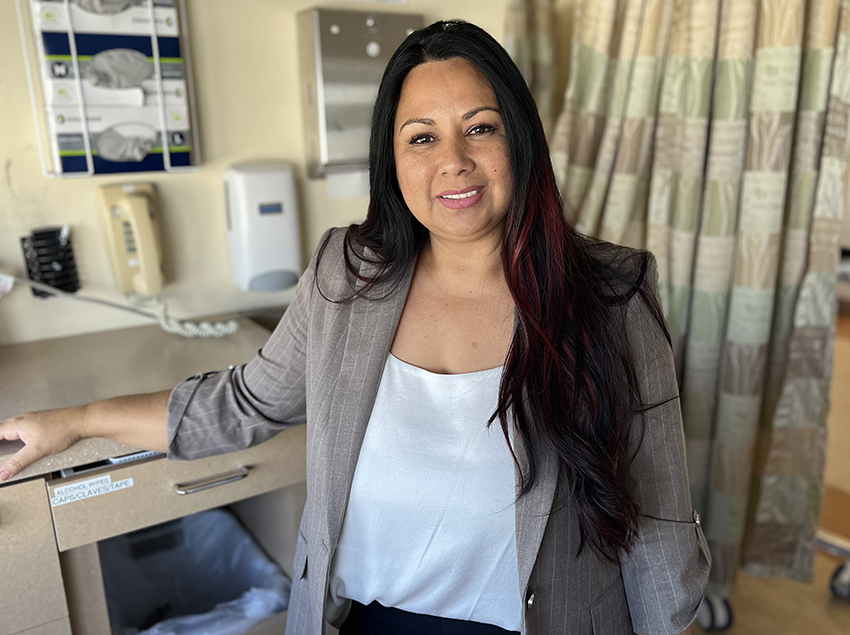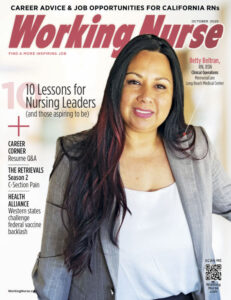CNO Roundtable 2025
Q6: Workplace Violence
Has your hospital developed any new strategies to help protect nurses at work?

Sharon Brown, Arrowhead Regional Medical Center
We recently implemented a behavioral escalation response team (BERT), which applies its expertise to de-escalating patients and educating frontline nurses.
Brandi Cassingham, Saddleback Medical Center (photo, top)
Over the past year, we’ve used safe workplace intervention teams (SWITs) whenever nurses are struggling with a patient. The SWIT creates an action plan so that caregivers feel supported.
Danielle Gabele, Ventura County Medical Center and Santa Paula Hospital
We’re developing a behavioral response team of nurses from our inpatient psychiatric unit, who are especially skilled in managing challenging behaviors. We’ve also deployed behavioral health nurses in our ED.
Karen Grimley, UCLA Health
A workforce safety initiative, including a peer-to-peer support program, aimed at addressing nurse wellbeing by fostering resiliency, engagement, and psychological safety.
Derrek Hidalgo, California Rehabilitation Institute
Having a leadership team that supports policies and initiatives to keep everyone safe is key. Staff need to feel that they are supported and valued — nobody deserves to face violence at work.
Ceonne Houston-Raasikh, Keck Hospital of USC
Our expanded workplace violence prevention team is evaluating screening tools for violent behavior. I’m also exploring technology solutions that will allow nurses to signal for emergency assistance using their ID badges.
David Marshall, Cedars-Sinai (above center, wearing blue suit)
We are rolling out a comprehensive workplace violence prevention program, including enhanced de-escalation training, improved reporting systems, and enhanced physical safety measures.
Roz Nolan, Dignity Health Community Hospital of San Bernardino
We’ve introduced several new safety measures, including a real-time communication system that alerts staff to safety risks, and personalized visitor badges that expire within 24 hours to better control access to our facility.
Dinarte Viveiros, MemorialCare Miller Children’s and Women’s Hospital
We’re working on a couple things, including de-escalation training for staff and a behavioral emergency response team that nurses can call for support in an escalating situation.
Kimmalo Wright, Olive View-UCLA Medical Center
Our frontline staff have formed a safety taskforce to review events or near-misses to determine what can be mitigated in the future. This group is also capitalizing on the strategies of our mental health nurses, which has significantly decreased violent incidents. ■
Return to CNO Roundtable 2025 Main Page
In this Article: Leadership and Management







